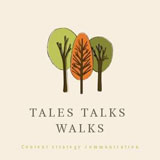Moichara – the century-old ‘secular’ rural festival of Bengal - GetBengal story
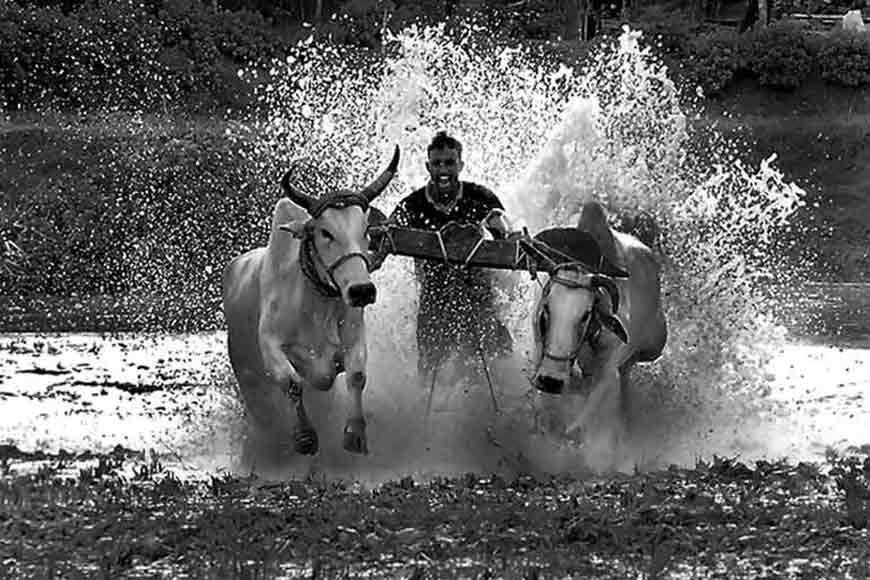
Moichara, aka cattle race festival, is held in Herobhanga village
Moichara is a festival, each year the village of Herobhanga (near Canning railway station) in West Bengal organizes. Moichara is a cattle race festival, marking the arrival of monsoon. It is usually celebrated to make everyone aware in the surroundings that cultivation of lands has started and one can expect a very good harvest. It is a unique festival and farmers wait for this season every year. The festival brings them the relief of rain that is crucial for the cultivation of crops and with it brings the excitement of bull racing. Though this festival has over a 100-year-old history in different regions of West Bengal, unable to keep pace with time, it is now on the verge of extinction. However, the villagers of Canning with their whole-hearted efforts are trying to keep the tradition alive.
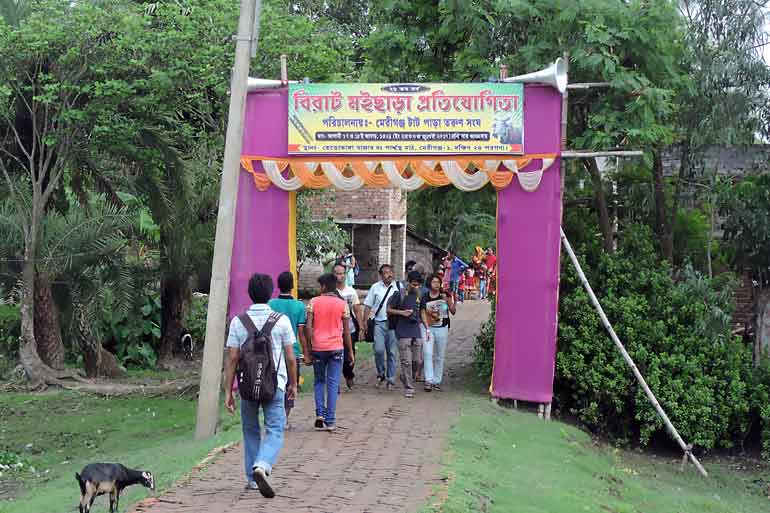
Well, the festival is not only for fun, the primary purpose behind this cattle race is to test the capacity of the bulls before the start of cultivation and also to increase the fertility of the land. Local farmers decide upon a paddy field, and they come from neighbouring villages with their bulls to race them in the waterlogged fields. One of the best features of this festival is that it does not belong to any particular religion, it is secular in nature. All the farmers, irrespective of which religion they follow, come together to celebrate the coming of the monsoon. The festival again proves that nature brings us together, differences of religion, culture, language and so on does not matter when it comes to nature. It brings harmony among the people of the village and it also serves the purpose of improving the agriculture of the place.
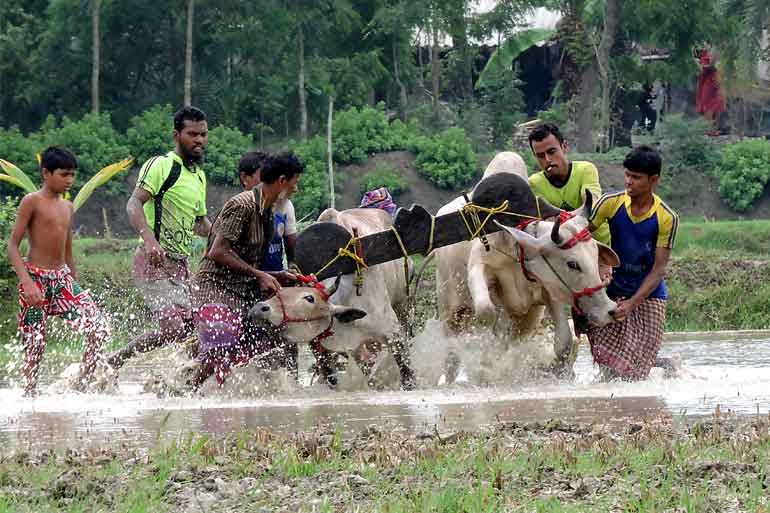
Also read : Paying homage to the soil
The bulls taking part in Moichara are specifically reared for this wild racing event. They are left unbridled for a frenzied run, and the men with all their might run with them till the finishing line of the race through the paddy fields filled with water and mud up to 6 inches. The race shows the physical strength of the men who take part in the festival, competing side by side with the enormous bulls. Controlling the bulls is difficult and requires sufficient expertise as the bulls are restless and impatient. They drive the guides out of breath and pace. At times, they slide and get stuck in the mud. Men too slip in the mud while keeping pace with the animals.
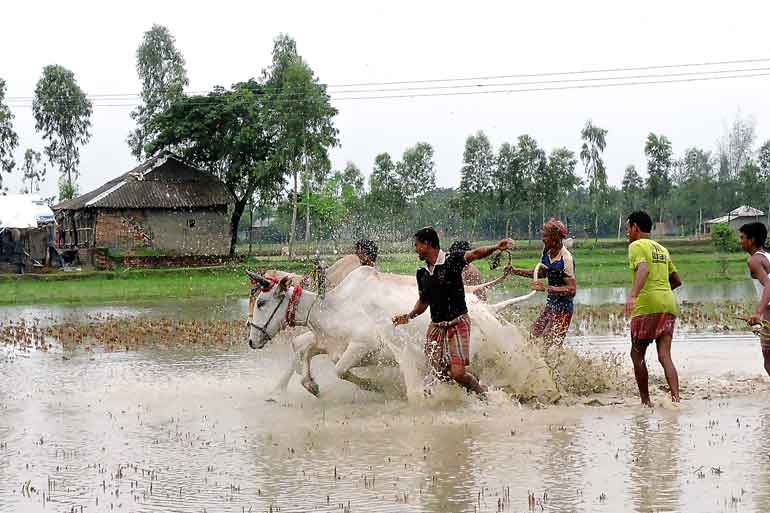
Earlier the winners of the Moichara festival used to get a bull. Nowadays, it has changed, now the winners get bicycles, almirah, furniture etc. The bulls race down the sloppy field, splashing the muddy water everywhere, it is a unique experience. The whole scenario is filled with intense drama. Hence, many photographers storm in from various states and different parts of the world to capture the intense moments of the bull race.
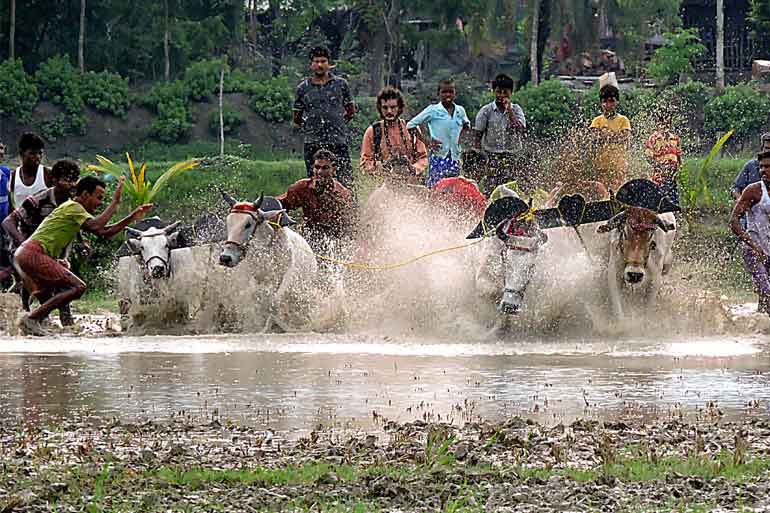
In South India, a similar sport is very famous, called Jallikattu. Certain locations act as a centre for a group of villages and each location has its variations of the sport — Manjuvirattu, Velivirattu and Vadamadu. Each variant has its set of rules and procedures. It is also known as “Eru Thazhuvuthal”, it is held during Pongal. Jallikattu is a traditional event in which a bull, such as the Pulikulam or Kangayam breeds, is released into a crowd of people, and multiple human participants attempt to grab the large hump on the bull's back with both arms and hang on to it while the bull attempts to escape. Participants hold the hump for as long as possible, attempting to bring the bull to a stop. In some cases, participants must ride long enough to remove flags on the bull's horns.
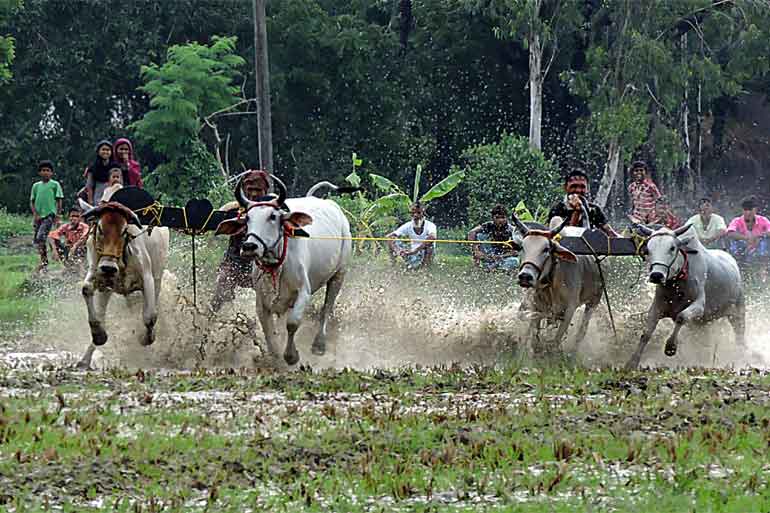 Moichara festival heralds the onset of monsoon season
Moichara festival heralds the onset of monsoon season
Though the festival of Moichara is celebrated to mark the onset of the monsoon, is it still applicable in today’s situation? The increasing temperatures and the El Nino effect, which refers to an abnormal warming of surface waters in equatorial Pacific Ocean, as a result of which it suppresses monsoon rainfall. The festivals celebrated by us are intertwined with nature. Nature is changing its course as a result of pollution and global warming and each season is also getting affected by it. We need to concentrate more on such indigenous natural festivals and take proper steps to preserve the rural lifestyle and our culture.
Image Courtesy : Prosenjit Dutta






